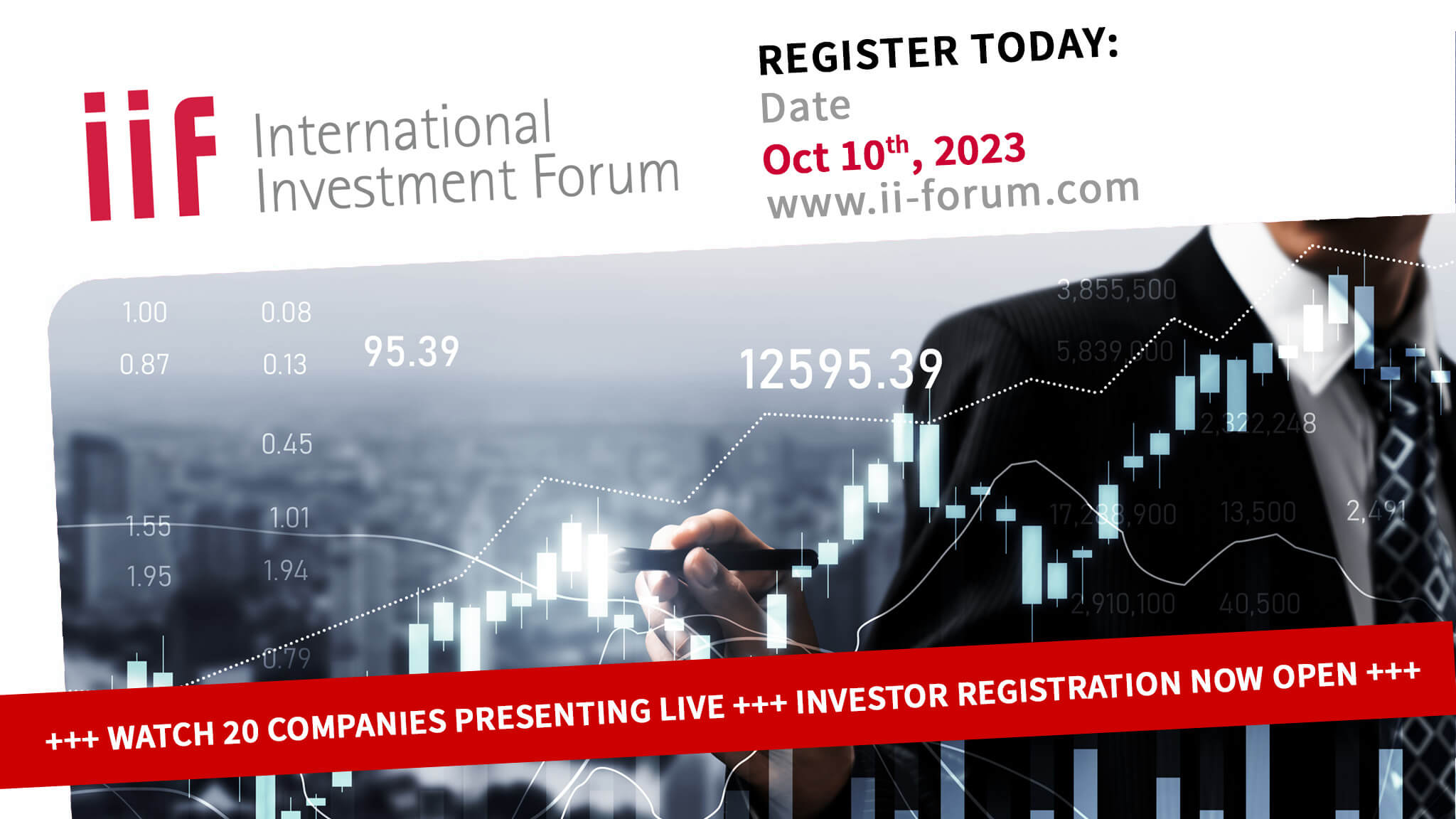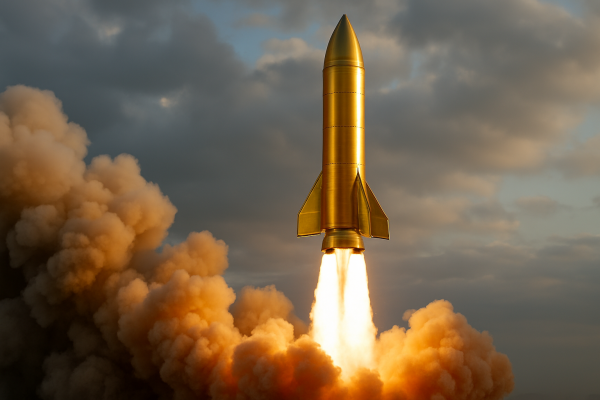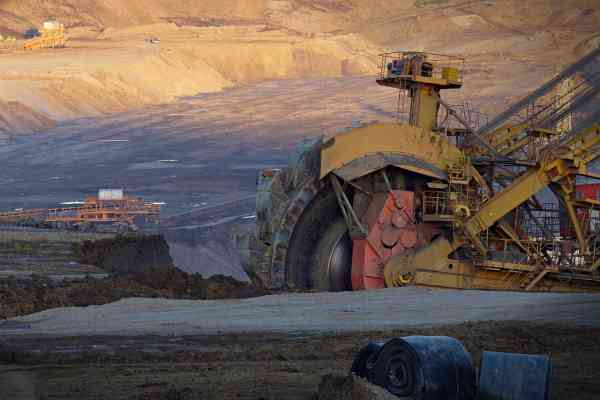October 2nd, 2023 | 08:25 CEST
First Phosphate, Volkswagen, Varta - Battle for battery raw materials picks up speed
The global demand for electric vehicles is steadily increasing, driving the need for battery raw materials. However, the battle for these coveted raw materials has political consequences, particularly concerning the strained relations between the US and China. The US has recognized that it is heavily dependent on China for access to key battery raw materials, which has led to tensions between the two countries. The US is working to reduce these dependencies. This is reason enough to examine three companies that rely on battery raw materials.
time to read: 5 minutes
|
Author:
Armin Schulz
ISIN:
FIRST PHOSPHATE CORP | CA33611D1033 , VOLKSWAGEN AG VZO O.N. | DE0007664039 , VARTA AG O.N. | DE000A0TGJ55
Table of contents:

"[...] Silumina Anodes® is a ceramic-coated graphite/silicon anode composite material that we plan to produce in Schwarze Pumpe, Saxony. Here, we aim to supply manufacturers of batteries for e-cars with an application-ready drop-in technology that is low-cost, high-performance and safe. [...]" Uwe Ahrens, Direktor, Altech Advanced Materials AG
Author
Armin Schulz
Born in Mönchengladbach, he studied business administration in the Netherlands. In the course of his studies he came into contact with the stock exchange for the first time. He has more than 25 years of experience in stock market business.
Tag cloud
Shares cloud
First Phosphate - USD 170 million Letter of Interest
Lithium iron phosphate (LFP) batteries are becoming increasingly popular thanks to their high safety and durability. This applies not only to electric vehicles but also to freight transport and the energy storage market. China is the leader in LFP cell production and dominates the upstream supply chain. To ensure more independence from China, investments are necessary. In this regard, it is advisable to consider manufacturers like First Phosphate, whose phosphate comes from anorthosite igneous phosphate rock, known for its high purity and battery suitability. These phosphate deposits account for only 1% of the world's phosphate. This has not escaped the attention of the Export-Import Bank of the United States (EXIM).
On September 29, First Phosphate announced that it had received a Letter of Interest (LOI) from EXIM to provide financing assistance of up to USD 170 million. In doing so, EXIM aims to protect American jobs and support projects that need help getting loans in the current environment. EXIM will conduct due diligence before making a final commitment. If the decision is favourable, more than 30% of the investment costs would already be financed before the start of production. On September 13, the Company signed a letter of intent with American Battery Factory (ABF) to produce up to 40,000 tons of LFP cathode material per year.
ABF President Major General John S. Kem said, "Raw material shortages, not technology, will be the biggest obstacle to introducing fully localized LFP batteries in North America." He is likely correct, especially when looking at phosphoric acid production in the United States in recent years. It has been steadily declining, yet demand continues to rise significantly in the coming years due to electrification. The battle for battery resources has long since begun, even if it is not yet visible everywhere. After the announcement on Friday, the stock price shot up and closed trading at CAD 0.33.
Volkswagen - Struggling with many problems
Automakers like Volkswagen were among the first to experience what it means to be dependent on China. When the supply of semiconductor chips from Asia dried up, the assembly lines were partially at a standstill. In the meantime, the chip crisis has been overcome, but things are still not running smoothly at Volkswagen. On September 27, production was again brought to a standstill at several locations due to an IT glitch. The reason given was a faulty data package originating from Group headquarters. The problem was rectified on the same day. It was also recently announced that the Trinity plant in Wolfsburg, which would have cost EUR 2 billion, will not be built. Instead, the Trinity model will likely be manufactured in Zwickau in the future.
In any case, the entire production infrastructure is currently being put through its paces. The shift to electric vehicles requires a rethink. Demand for electric vehicles in Europe has declined recently due to high inflation, increased interest rates, charging infrastructure, lack of range and poor resale prices. Accordingly, production in Zwickau and the Gläserne Manufaktur in Dresden is being scaled down for the time being. Since the Company has also recently lost market share in China and alarm signals are also coming from North America, the sales targets may have to be adjusted again.
According to Handelsblatt, however, the problem in North America is not raw materials but a lack of rail cars and train drivers. The VW plant in Mexico has long routes to the US, and it seems some railroad companies have let Volkswagen down. An insider reports approximately 30,000 undelivered vehicles. This is a challenging situation for the Company because sales figures in the US have climbed significantly recently. In September, there were 4 buy recommendations for the share, 2 analysts advised holding, and UBS even issued a sell recommendation. The price targets were between EUR 100 and EUR 193. At last count, one share cost EUR 108.94 on Xetra trading.

Varta - Unfortunate performance
Varta AG was once considered the German hopeful for the future of the battery industry. However, in recent years, the Company has experienced a decline triggered by several factors. These include increased competition in the industry, customer reluctance to buy due to Corona, later exacerbated by rising inflation, and significantly increased energy costs in Germany. In addition, the hopeful V4Drive cell failed to live up to expectations, causing the stock to fall by more than 90% at its peak since 2021. Just like the previous year, the management had to make downward revisions to its forecasts this year.
Varta is also not presenting a favorable image in other respects at the moment. On September 27, the Company announced that supervisory board member Martin Ohneberg had purchased shares worth EUR 160,362.27. In principle, it is positive when board members buy shares, as it reflects confidence in their own company. The problem in this case is that Mr. Ohneberg sold the shares. By the time the correction announcement was out, the stock market had already closed. In capital market circles, there is speculation as to whether another profit warning will be issued before the next quarterly figures and whether another capital increase will be necessary.
On September 28, the Company announced it was working on two research projects to advance renewable energy storage. The energy storage market is quite lucrative; however, currently, the Group is buying the storage solutions and merely branding them with its name. The research projects are to be completed by January 31, 2026, and it will take as long as 2030 before they are ready for series production. The fact that one project is being funded by the German Federal Ministry of Education and Research is at least easy on Varta's wallet, but it may not provide immediate benefits to the Company. The share nevertheless reacted positively and left Xetra trading on Friday at EUR 18.145.
As a producer of battery raw materials, a golden future awaits. Demand is increasing, and alternatives are needed to reduce dependence on China. High-purity phosphate could be supplied by First Phosphate in the future, and there are efforts by several US institutions to collaborate with the Canadians. For Volkswagen a new era has begun with electric mobility, and the old structures have to be adapted. Here, the raw material problems of the future are only part of the big overall task. Likewise, at Varta, it is not the lack of raw materials that is the problem, but the sharp rise in costs and the slump in demand.
Conflict of interest
Pursuant to §85 of the German Securities Trading Act (WpHG), we point out that Apaton Finance GmbH as well as partners, authors or employees of Apaton Finance GmbH (hereinafter referred to as "Relevant Persons") may hold shares or other financial instruments of the aforementioned companies in the future or may bet on rising or falling prices and thus a conflict of interest may arise in the future. The Relevant Persons reserve the right to buy or sell shares or other financial instruments of the Company at any time (hereinafter each a "Transaction"). Transactions may, under certain circumstances, influence the respective price of the shares or other financial instruments of the Company.
In addition, Apaton Finance GmbH is active in the context of the preparation and publication of the reporting in paid contractual relationships.
For this reason, there is a concrete conflict of interest.
The above information on existing conflicts of interest applies to all types and forms of publication used by Apaton Finance GmbH for publications on companies.
Risk notice
Apaton Finance GmbH offers editors, agencies and companies the opportunity to publish commentaries, interviews, summaries, news and the like on news.financial. These contents are exclusively for the information of the readers and do not represent any call to action or recommendations, neither explicitly nor implicitly they are to be understood as an assurance of possible price developments. The contents do not replace individual expert investment advice and do not constitute an offer to sell the discussed share(s) or other financial instruments, nor an invitation to buy or sell such.
The content is expressly not a financial analysis, but a journalistic or advertising text. Readers or users who make investment decisions or carry out transactions on the basis of the information provided here do so entirely at their own risk. No contractual relationship is established between Apaton Finance GmbH and its readers or the users of its offers, as our information only refers to the company and not to the investment decision of the reader or user.
The acquisition of financial instruments involves high risks, which can lead to the total loss of the invested capital. The information published by Apaton Finance GmbH and its authors is based on careful research. Nevertheless, no liability is assumed for financial losses or a content-related guarantee for the topicality, correctness, appropriateness and completeness of the content provided here. Please also note our Terms of use.




